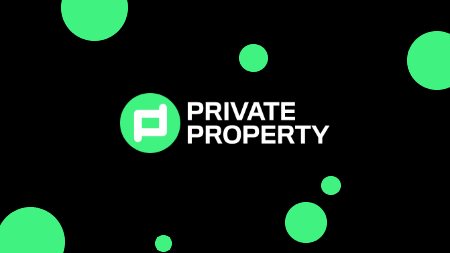Two of the revealing insights from the Absa Homeowner Sentiment Index for Q2, 2020, was that first time home buyers are being enticed into the market by low interest rates, and existing property owners have been seriously considering right-sizing their homes. The shift from renter to buyer was also a factor in play. These three factors, plus the continuing interest by investors intent on building a property portfolio have once again highlighted the need for home loan ‘access’ information.
Nondumiso Ncapai, Head: Product at Absa Home Loans responds to the most commonly asked questions, qualifying that Absa products are comprehensive solutions.
Q: What is meant by ‘access’ in terms of a home loan?
A: A home loan can be considered a source of additional money and there are a number of ways to tap into that. For example if you already have a home loan, and have paid into that more than the required monthly payments, you will be able to access those additional funds, which can be used for anything. People pay extra to save on interest because the largest portion of your monthly home loan payment is initially directed at paying off the interest. Paying extra also results in the ability to pay off one’s home loan sooner.
By using the equity (see below) in your home, you can do the renovations you have always wanted, use it as a deposit for another property and so start expanding your property investment portfolio, or even take a holiday.
Q: How does a Readvance allow me to access funds?
A:This is the difference between what you still owe on the original home loan and what you have paid. You can access those funds subject to a credit assessment. It’s an excellent concept because in times of need it can be the quickest way to tap into emergency funds, and is effectively money that you have already invested. Bear in mind that this does change your monthly bond payment, which will obviously be higher, and may require reworking your term of payment.
Q; What is a further advance?
A; A further advance allows you to access the difference between your current outstanding balance and the current market value of your property. Let’s assume you have a bond for R600 000. You have paid off R100 000, but since you bought your property it has increased in value, and you are likely to sell for R700 000 based on a valuation. That difference is R200 000. You can apply for a further advance for up to the value of R200 000 but this requires you to register a further bond on the property. In actioning this you have to account for the usual bond registration costs.
Q: What is meant by property equity?
A: Equity refers to the difference between what you owe on your home loan and the current market value of your home. In other words it the actual portion of your home that you ‘truly’ own. Let’s assume you have borrowed money from Absa to purchase a home, Absa then has an interest in that property until you have paid off the loan in full. As you pay off the home loan, your equity in the property increases, and Absa’s decreases. Throughout this however, you are still considered the homeowner.
Q: How can I determine the value of my property?
A: You can engage a valuation agency to employ a valuer to value your property. The outcome may be more in line with the bank’s valuation. Alternative options include asking an estate agent to view your home, as they are best positioned (aside from a valuer) to provide a more accurate idea of what your property is worth.
Another way is to visit the Private Property website and look at similar properties in your area. This will give you some idea of what you can market your property for, keeping in mind that the listed price on the website is not necessarily the price at which the property will be sold.
Lastly, the municipal value of your property used in the calculation of your rates and taxes appears on your council bill and can also serve as an indication of value. There are factors to consider such as the condition of your property, so while a ballpark figure may be a starting point, the rule of ‘willing buyer, willing seller’ will always apply, meaning the value of your property really lies in what someone is willing to pay for it.
Q: What are the pro’s and con’s of accessing my property equity?
On the plus side you can tap into cash at a lower rate than other financial loan options and because the home loan term is already in place (usually 20 years), you have a much longer repayment period. The negatives include an increase in your home loan balance, your monthly repayments may also increase, and if you engage a further advance, there are costs to register a higher bond.
Q: I am a first-time home buyer, how do I start to create wealth with property?
A: When considering this important decision, you need to ensure that you have a good credit score. This can be accessed through the credit bureaus, of which there are a number and generally all offer one free credit report per year.
You also need to ensure that you will be able to afford the monthly repayments to service your home loan. Doing this through Absa’s website is easy. We provide a home loan pre-qualification tool, the ‘Home Loan Estimator’ that will help you determine what home loan amount you could qualify for. This results in a certificate that you can use as a good baseline when you undertake your online property search, such as Private Property.
The certificate is also useful to present to estate agents as an indicator of what you MAY be entitled to access in terms of a home loan, and is valid for three months. I say ‘may’ because you have yet to go through the application process for a home loan, which is undertaken when you make a serious offer on a property. More information can be sourced from: www.absa.co.za/homeloanestimator.
It is important however, when planning to buy a home, that you take into account any upfront costs, which include transfer and bond registration costs as well as rates and taxes, levies (in the case of sectional title), water, lights and moving costs.
The next consideration is using the Absa My Home proposition, applicable to first-time buyers that earn up to R25 400 gross monthly income. My Home offers a 50% discount on attorney bond registration costs, zero initiation fees and you can get up to 100% financing. Absa also has a solution for young professionals under the age of 35 and who have an NQF 8 or higher qualification, the benefits of which includes up to a 105% bond potential and a 30% discount on attorney bond registration fees.
Q: Is a property portfolio a good investment?
A: The decision to buy a home, or a number of them, will always be dependent on individual financial circumstances, and should be guided by affordability. All home loan applications and affordability are assessed by Absa and in line with the National Credit Act (NCA), which insists on analysing a customer’s income, debt commitments and monthly household expenses.
There are many considerations if you want to create wealth through property ownership, which is why Absa also offers access to experienced financial advisors and property finance specialists. Part of this service includes their guiding home loan applicants through the value-add products, such as various insurances, be that life policies which are required for a home loan application, and property insurance. They will also be able to guide the type of investment portfolio you will be able to manage and the related bank propositions.




